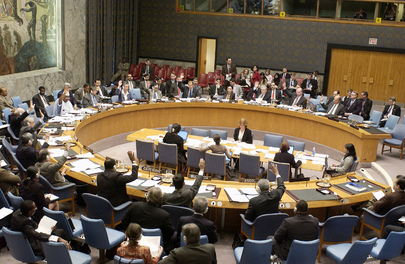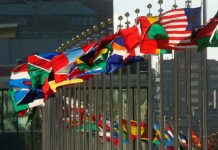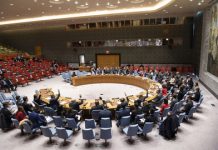One in five Gazans at risk of starvation, warn food insecurity experts
One in five people there – around half a million – could starve between now and September, according to the UN-backed food security alert scale known as the IPC.
“Goods indispensable for people’s survival are either depleted or expected to run out in the coming weeks,” it said, noting that food prices have soared.
Today in Gaza, a 25 kilogramme sack of wheat flour costs between $235 and $520 – representing a 3,000 per cent price spike since February.
The development comes amid continuing Israeli bombardment across Gaza including on another school run by the UN agency for Palestine refugees, UNRWA, on Saturday.
According to the UN agency, the strike hit the facility in Gaza City in the early evening, reportedly killing two people and injuring an unknown number of others.
Climate change takes extreme toll on African countries: WMO
Climate change is already an existential threat across Africa with persistent drought and deadly flooding a fact of life for millions.
In a call for global action to help the continent protect those most at risk, the UN World Meteorological Organization – WMO – noted that temperature rise across Africa last year was highest in the north – a full 1.28 degrees Celsius above the long-term average.
The WMO warned that in Southern Africa, Malawi, Zambia and Zimbabwe suffered the worst drought in at least two decades, with cereal harvests cut by up to half.
Meanwhile in West Africa, rising waters caused by torrential rains impacted a staggering four million people.
Northeast Africa also faces a climate threat, with countries including South Sudan, hit by devastating floods in recent months that have left thousands of herders without the livestock that are central to their livelihoods and age-old customs.
Tackling the silent pandemic on the road: Road Safety Week begins
To the important issue of road safety now, which is a “silent pandemic” affecting 50 million people globally.
That’s according to the UN’s road safety envoy and former president of Formula 1 racing, Jean Todt.
He’s spearheading efforts to keep people safe, whether they’re behind the wheel of a car, on a motorbike, bicycle or walking, as part of Road Safety Week which began on Monday.
Every year, 50 million people receive medical care after a road accident and one in five of these survivors suffers lifelong injuries, Mr. Todt told UN News.
One of the best ways to prevent such injuries is by wearing a helmet, he said.
“There is no fatality we cannot prevent and solutions exist: but this is not enough to convince people to change…Education, respect of laws, the quality of roads and vehicles, changing risky behaviours or post-crash services, all save lives on the road. Wearing a quality helmet can reduce the risk of fatality by over 74 per cent. Isn’t it totally nonsense to deprive ourselves of it?”
Mr. Todt noted that road accidents cost countries five per cent of their economy every year – and that this money could be saved by investing in road safety and quality helmets.
Music composed and produced by Joachim Harris. All rights reserved.
Source of original article: United Nations (news.un.org). Photo credit: UN. The content of this article does not necessarily reflect the views or opinion of Global Diaspora News (www.globaldiasporanews.com).
To submit your press release: (https://www.globaldiasporanews.com/pr).
To advertise on Global Diaspora News: (www.globaldiasporanews.com/ads).
Sign up to Global Diaspora News newsletter (https://www.globaldiasporanews.com/newsletter/) to start receiving updates and opportunities directly in your email inbox for free.































